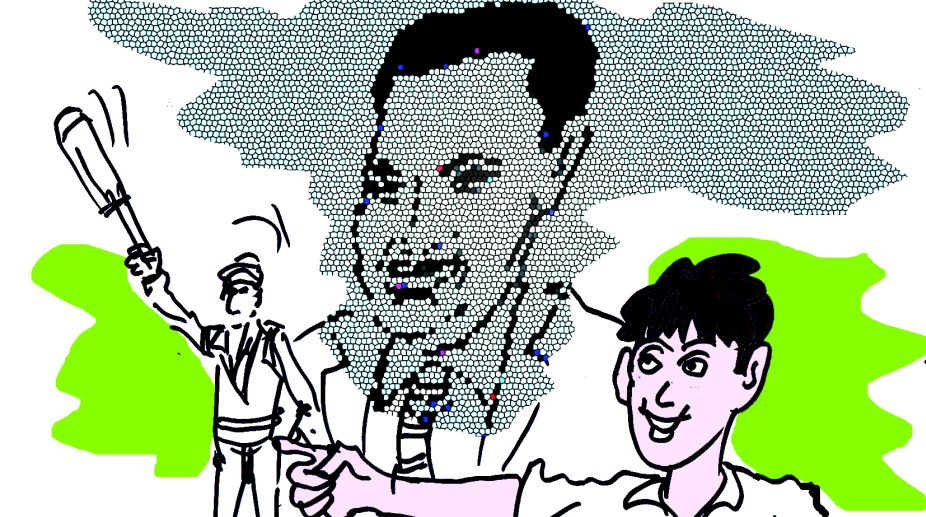Mother had three brothers who were successful doctors. Father had two friends who were well placed engineers. But I did not want to be a doctor or engineer. I wanted to be a cricketer.
A cricketer? My parents were thoroughly confused. They mingled with capable lawyers, journalists, professors, musicians, executives, writers and businessmen, and could not understand their son’s ambition. How could he be so aberrant? It was entirely the fault of one man, whom few remember today and many once worshipped: Mushtaq Ali.
At a time when Britannia ruled the waves and cricket was the prince of games, Mushtaq was, for a brief shining moment, the regal champion of the game, the swashbuckling hero who took a staid game and raised it to the pinnacle of glamour and excitement. Keith Miller, a glitzy Australian all-rounder, spoke of him as the Errol Flynn of cricket, who could, with feline grace and sheer flamboyance, change a game’s destiny in the twinkling of an eye.
A lanky youth from a middle-class Muslim family in Indore, a commercial town in central India, he first played hockey creditably, and then learned cricket on his own. Playing initially in local and regional matches, he was a star by 19, graduating eventually to the national scene. He entered as a competent left-hand bowler, but promptly showed his mettle as a right-hand batsman, of daring and wizardry unmatched by his English, Australian and West Indian adversaries.
I was ten when father handed over to me the prized ticket for a test match between India and West Indies. It was a spectacular match, with Indian players contending against a redoubtable West Indian team comprising the legendary duo of Weekes and Walcott. The pair burnished their reputation, each scoring a century in the second innings and Weekes scoring one in the first innings too. When you have seen Weekes bending down on his left knee and sending a ball to the boundary in a flawless cover drive, you think you have seen the ultimate cricket.
Not quite. Mushtaq came out as the opening batsman in India’s second innings, facing the formidable task of matching a huge West Indies score. I can still see a clear, crisp winter morning, the bright sun lighting up the Eden Gardens pitch in Kolkata, its oblique rays playing on Mushtaq’s bronze face as he took his stance at the wicket and slowly turned his head, as if to acknowledge the deafening cheer of the crowd. Never intimidated, seldom cautious, Mushtaq waited only up to the fourth delivery from Cameron before, in a typically bold gesture, he walked forward and sent a shot right to the boundary.
That was just the beginning. He played faultlessly, stylishly, dramatically for two hours, against deadly bowling by Gomez and Goddard, cutting, driving, hooking and pulling in a maelstrom of mastery. He achieved a perfect century, before he was leg before wicket to Atkinson. When Mushtaq started walking back to the pavilion, I felt like crying, like every other spectator. However, we had all seen the best of cricket.
Selection committees who chose players for test matches did not care much for Mushtaq because they thought of batsmen as run gainers rather than artful performers. On one occasion when they did not select Mushtaq, sports lovers took to a protest march, declaring, “No Mushtaq, no test.” Mushtaq was eventually and reluctantly included.
The players have changed. Even the game of cricket has changed radically. But Mushtaq remains a model of devil-may-care sportsmanship, of a kind you rarely see at any time in any game. Aneurin Bevan once spoke scoffingly of “desiccated calculating machines” pretending to be leaders; it applies also to sportsmen. Mushtaq was different: elegant, playful, daring. Rightly, he was a darling of the crowd.
That is why I wanted to be a cricketer. Like Mushtaq.
The writer is a Washington-based international development advisor and had worked with the World Bank. He can be reached at mnandy@gmail.com










